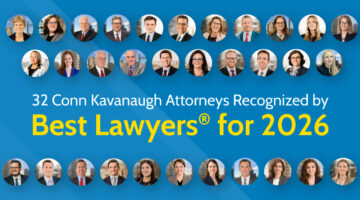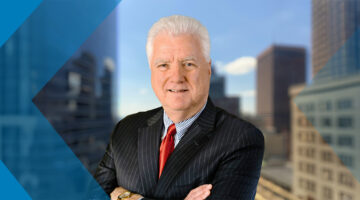The amendments are broad and include new and revised rules on topics ranging from the retention of client files to sexual relationships with clients. A number of different rules are impacted.
The amendments reflect some of the broader trends and issues of the times in which we are living. For example, there is an emphasis in the amendments on civility among lawyers. A new comment added to Mass. R. Prof. C. 1.2, which governs the allocation of authority between client and lawyer, reminds lawyers that we have professional obligations of civility and candor which cannot be cast aside in accomplishing a client’s objectives. The comment states that a lawyer should not allow a client’s “personal prejudices or animosity” to dictate a lawyer’s treatment of third parties in the legal process. The comment also states that lawyers should reject requests to engage in “abusive tactics.” Lawyers have an obligation to be zealous advocates, but this does not mean channeling a client’s behavior that is inappropriate or abusive. The focus on civility also comes up in a new comment to Mass. R. Prof. C. Rule 3.4, which governs fairness to opposing counsel. This comment codifies what most lawyers recognize naturally – that part of being fair to opposing counsel is to cooperate in scheduling and case management and to confer in good faith in order to resolve or narrow issues before submitting them to a tribunal for decision.
Another sign of the times, perhaps, is an amendment that focuses on how we as lawyers address situations where a colleague is mentally, emotionally, or physically impaired. Mass. R. Prof. C. 5.1 addresses the responsibilities of partners and supervisory lawyers. The previous version of the Rule focused mostly on compliance with the ethical rules and responsibility for professional misconduct. A new comment provides that the obligations imposed by Rule 5.1 include dealing with colleagues whose mental, emotional, or physical abilities have declined to the point of impairing their ability to provide competent representation. Though the comment is short on specifics, it does provide that persons with managerial authority in a law firm should encourage colleagues to seek assistance and put in place procedures such as auditing the lawyer’s past or future work as reasonably necessary to protect clients.
The amendments also address specialization and certification in a particular area of the law. Existing Rules 7.1 through 7.5, which address communications concerning a lawyer’s services, advertising, solicitation of clients, and the like, have been deleted and replaced by new Rules 7.1 through 7.3. There is a lot of overlap, but one key difference is that new Mass. R. Prof. C. 7.2(c) clarifies that lawyers may hold themselves out publicly as specialists in particular areas of the law provided that the communication is not false or misleading. This could encompass a statement that the lawyer concentrates in, specializes in, has expertise in, or limits practice to a particular area of the law. There is a word of caution on lawyers holdings themselves out as “certified,” however. The Rule provides a number of criteria that must be satisfied for a lawyer to claim that he or she is “certified” in a practice area, including that certification has been conferred by an accredited organization. It is also worth noting that a new comment to Rule 7.2 provides that lawyers who hold themselves out as specialists should expect to be held to the standard of performance of specialists in that particular field. This could have implications for bar disciplinary matters as well as malpractice claims.
The amendments, which were adopted by the SJC on July 13, 2022, take effect on October 1, 2022.
Michael J. Rossi is a partner at Conn Kavanaugh Rosenthal Peisch & Ford, LLP in Boston. His practice focuses on professional liability, business litigation, and employment matters. He can be reached at mrossi@connkavanaugh.com
Share with your network:

